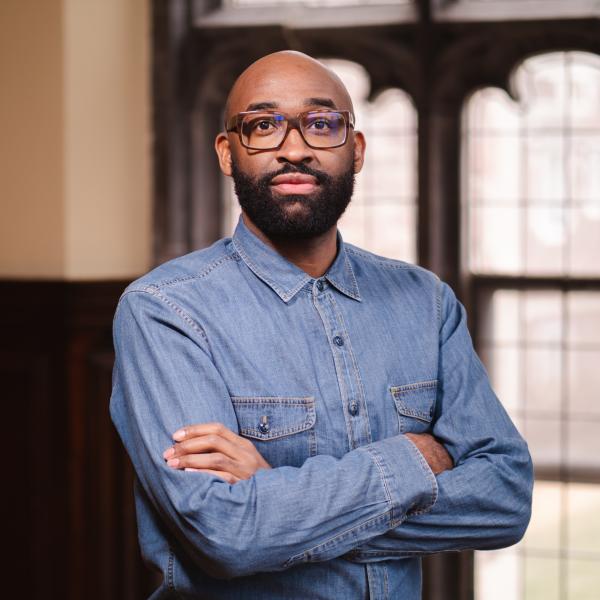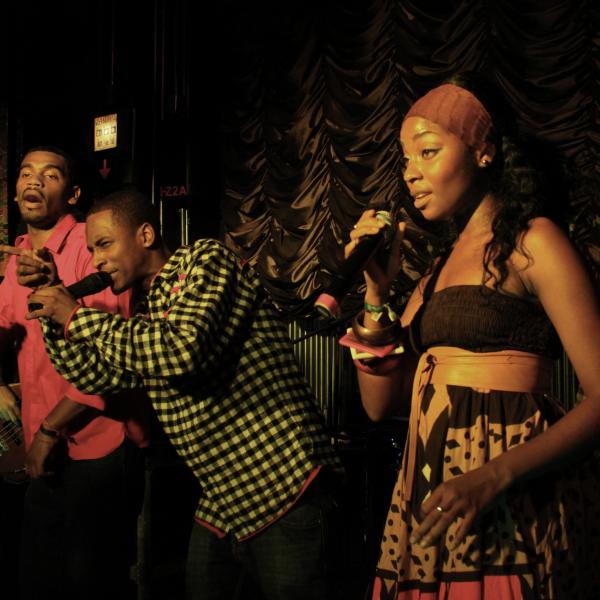Joseph Loewenstein is a professor of English and director of Interdisciplinary Project in the Humanities.
For some reason, I remember this as the opening of Housekeeping, whereas it is, in fact, the novel’s fourth paragraph, at once less matter-of-fact, less sly and less hauntingly atmospheric than the three paragraphs that precede it, yet it is plenty sly, haunted and plain. It is certainly not as showy as the opening of Great Expectations, but something about it suggests to me that its author might be Dickens at the end of his American tour, traveling incognito (as he would never have done):

Though it was reported in newspapers as far away as Denver and St. Paul, it was not, strictly speaking, spectacular, because no one saw it happen. The disaster took place midway through a moonless night. The train, which was black and sleek and elegant, and was called the Fireball, had pulled more than halfway across the bridge when the engine nosed over toward the lake and then the rest of the train slid after it into the water like a weasel sliding off a rock. A porter and a waiter who were standing at the railing at the rear of the caboose discussing personal matters (they were distantly related) survived, but they were not really witnesses in any sense, for the equally sound reasons that the darkness was impenetrable to any eye and that they had been standing at the end of the train looking back.
What I remembered was the central clause, “and then the rest of the train slid after it into the water like a weasel sliding off a rock,” which has the uncanny slant of relevance that we associate with epic simile, the tragedy at once forgotten and reincarnated as a mildly unnerving creature. I had forgotten the oblique evocation of mid-night time and mid-western location (such that Denver and St. Paul are each at once far away and relevant), conversation pitched between intimacy and distance, of lives arrested “halfway across the bridge.” I had forgotten what survives them, the sneaky attenuation of “black and sleek and elegant,” which I now see prepares for the weasel, which is what I remembered.
Marilynne Robinson published Housekeeping almost four decades ago. My colleague Miriam Bailin refers to it as “a desert island novel,” and our hard-to-please senior colleague, Stanley Elkin, thought it so impressive a first novel that he insisted that she be invited to Washington University for a semester as a Hurst Professor. We had never met a young writer so learned, so unfashionable in her intellectual habits, so serenely friendly and so grave. We tried to hire her shortly after her visit, and again a decade after that, but she liked it in Iowa.
A quarter of a century after Housekeeping appeared, Robinson published Gilead; four years after that came Home, and then Lila in 2014. They make up a strange trilogy, each of the novels constellated by the households and families of two preachers (one Presbyterian and one Congregationalist), each in a sense implicit in the others and all of them prayerful in ways unprecedented in any work of fiction I know. Housekeeping is set in a Midwest always on the verge of sliding into water; the novels set in Gilead, Iowa, are drenched otherwise:
The moon looks wonderful in this warm evening light, just as a candle flame looks beautiful in the light of morning. Light within light. It seems a metaphor for something. So much does. Ralph Waldo Emerson is excellent on this point.
Gilead, quoted here, is a long letter from John Ames, old enough to be dying, to his seven-year-old son. Quotation doesn’t serve it well: Excerpted, its tenderness seems to edge closer to mawk than it does as Ames unfolds his testament. You can see Robinson pull it back from that brink by having Ames acknowledge his sources. He has been preaching for decades, reading for inspiration and clarification, and his tenderness expresses itself in efforts to record the radiance of both the evening and of Emerson’s intelligence.
It seems to me to be a metaphor for the human soul, the singular light within the great general light of existence. Or it seems like poetry within language. Perhaps wisdom within experience. Or marriage within friendship and love. I’ll try to remember to use this. I believe I see a place for it in my thoughts on Hagar and Ishmael.
Gilead won a Pulitzer Prize for Fiction and the deep admiration of Barack Obama. What is there for such a president in such a book? A sustained meditation on stewardship in short installments, it can be taken in, a page or two at a time, by a harrowingly busy person in dire need of quiet and continuity. Gilead is a novel of American history, of America’s best history: John Ames remembers the fierce struggle between his pacifist father and his Free Soil grandfather. The mid-western America of the Ames family is less a nation than a ministry, less industrial than spiritual. A certain kind of president might hope that we could suspend each other in something like a parent’s radiant attention:
You are standing up on the seat of your swing and sailing higher than you really ought to, with that bold planted stance of a sailor on a billowy sea. The ropes are long and you are light and the ropes bow like cobwebs, laggardly, indolent. Your shirt is red — it is your favorite shirt — and you fly into the sunlight and pause there brilliantly for a second and then fall back into the shadows again. You appear to be altogether happy. I remember those first experiments with fundamental things, gravity and light, and what an absolute pleasure they were.
EVENT: Holy Moses: An appreciation of Genesis and Exodus as literature and theology
Marilynne Robinson
4:30 pm, Umrath Lounge in Umrath Hall (all three linked lectures)
Tues., Nov. 13: Moses and the Ethos of Scriptural Narrative + book signing
Wed., Nov. 14: Jacob
Thurs., Nov. 15: Joseph and His Brothers



